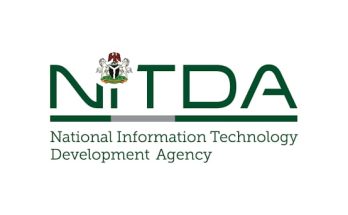By Yannick Decaux
Technology is constantly disrupting the way people interact with each other and is having a profound impact on the way in which businesses operate in today’s new digital economy.
The Information Communication Technology (ICT) industry is playing an increasingly significant role in reinforcing on regional trends in business, investment and modernisation, which are the core surfacing of a connected IT environment.
The rapid evolution of the digital era in Africa is providing opportunities for businesses to be more profitable and focus on the needs of the customer, as they look to new markets to find opportunities.
The digital transformation in Africa has led to a better connection between people, and more opportunities for organisations and businesses.
Digital transformation as a catalyst has changed the African economy, offering new opportunities for job seekers, entrepreneurs, brands and businesses. This pace of transformation across Africa has led to countries such as Nigeria and South Africa reaping the benefits of greater digital penetration.
The ‘We are Social’ report (2016) released key digital statistical indicators highlighting on digital, social and mobile usage around the world. The report found that Africa as a whole has about 1,201 million people and out of the whole African population 986 million people have a mobile connection.
With a growing, urbanising population, Africa as a whole has 349 million active internet users, of which 129 million are active social media users and 102 million are active mobile social users.
The shift that is taking place in Africa’s ICT sector is driven by a strong desire to attract new businesses and the booming market is reaping these benefits, stimulating economic growth and making way for a more digital future. Nigeria, being Africa’s leading economy and population, has an overwhelming appetite for mobile connectivity, and this has led to the emergence of new technologies and a strong drive towards digitisation.
According to the ICEF Monitor research (2014), Nigeria is expected to enter the “economic stratosphere” between now and 2050, with the highest average GDP growth in the world.
Nigeria’s annual GDP growth has been around 7% over the past few years, as compared to 2.8% in the US in 2012 and less than 1% in the UK, that same year.”
Nigeria takes up 184.6 million of the total population in Africa and out of that 97.2 million is active on the Internet. 154.3 million Nigerians have a mobile Internet connection, with 15 million being active social media users and 11 million being active mobile social users.
The country has experienced a startling growth of 12% in the number of active Internet users between the years 2015 and 2016 with the figure expected to increase in 2017. Nigeria’s ICT sector has shown rapid expansion over the years. As the country continues to be seen as a centre for investors and entrepreneurs who are attracted by the prospect of growing services to Africa’s largest population and economy.
Nigeria now faces the challenge of further growing its ICT industry to empower its citizens economically. The telecommunications space in Nigeria has largely been dominated by key players such as: Airtel, Globacom, Etisalat and MTN. According to the ‘We are Social’ report (2016), it is estimated that 38% of Nigerians have access to the internet and most access it through their mobile phones.
“Battling for the number one spot for Africa’s largest economy are both Nigeria and South Africa,” says the report. “They both benefit from some of the most high-tech markets in the world, and are home to the headquarters of various multinational players in the ICT industry such as Microsoft, Google and IBM.”
Digital trends such as cloud computing, mobile web services, smart grids, and social media, are radically changing the business landscape and reshaping the nature of work. Digital technologies disrupted the traditional business models of organisations.
In the long term, three trends are likely to sustain Africa’s growth; firstly, the continent has a young population with a growing labour force – a highly valuable asset in an ageing world. Secondly, Africa is still urbanizing and much of the economic benefit lies ahead. Productivity in cities is three times as high as in rural areas and, over the next decade, an additional 187 million Africans will live in cities, according to the United Nations. Thirdly, African economies are also well positioned to benefit from rapidly accelerating technological change that can unlock growth and improve infrastructure.
Digital transformation is a positive direction for the Nigerian ICT industry. “It shows that the market is ready for further growth in the technology space. With the greater adoption of internet services, businesses are able to engage in direct contact with consumers through e-commerce, generate high revenue and accelerate the growth of the Nigerian economy as a whole.” Orange Business Services in Nigeria supports both Nigeria-based businesses, which are growing and transforming due to digital technologies, and multinational companies from elsewhere on the continent and beyond.
“Orange Business Services supports the many Nigeria-based businesses that wish to increase their business performance and profitability, by acting as a trusted advisor to help our customers compete on an equal footing in what is rapidly becoming a global market, this includes competitive high-quality IT services,” says Vice President, Africa at Orange Business Services, Giorgio Heiman. Ultimately, the future of Nigeria’s ICT industry is bright. Rising forward in the year 2017, there is a presence of a strong demand that exists for new innovations and the Nigerian government is also putting in place regulations to create a friendlier investment scenario in the country’s ICT space.
Orange Business Services, the Orange branch dedicated to B2B services, is not only a telecom operator, but also an IT solutions integrator and applications developer in France and around the world. Its 20,000 employees support companies in all areas of their digital transformation: mobile and collaborative workspaces;
IT/cloud infrastructure; fixed and mobile connectivity; private and hybrid networks; applications for Internet of Things, 360° customer experience and Big Data analytics; and cybersecurity thanks to dedicated experts and infrastructure to protect information systems. More than 3,000 multinational organisations and 2 million SOHOs, enterprises and local authorities in France rely on Orange Business Services as their trusted partner.
Decaux, is Sales Director, sub-Saharan Africa, Orange Business Services, South Africa.



